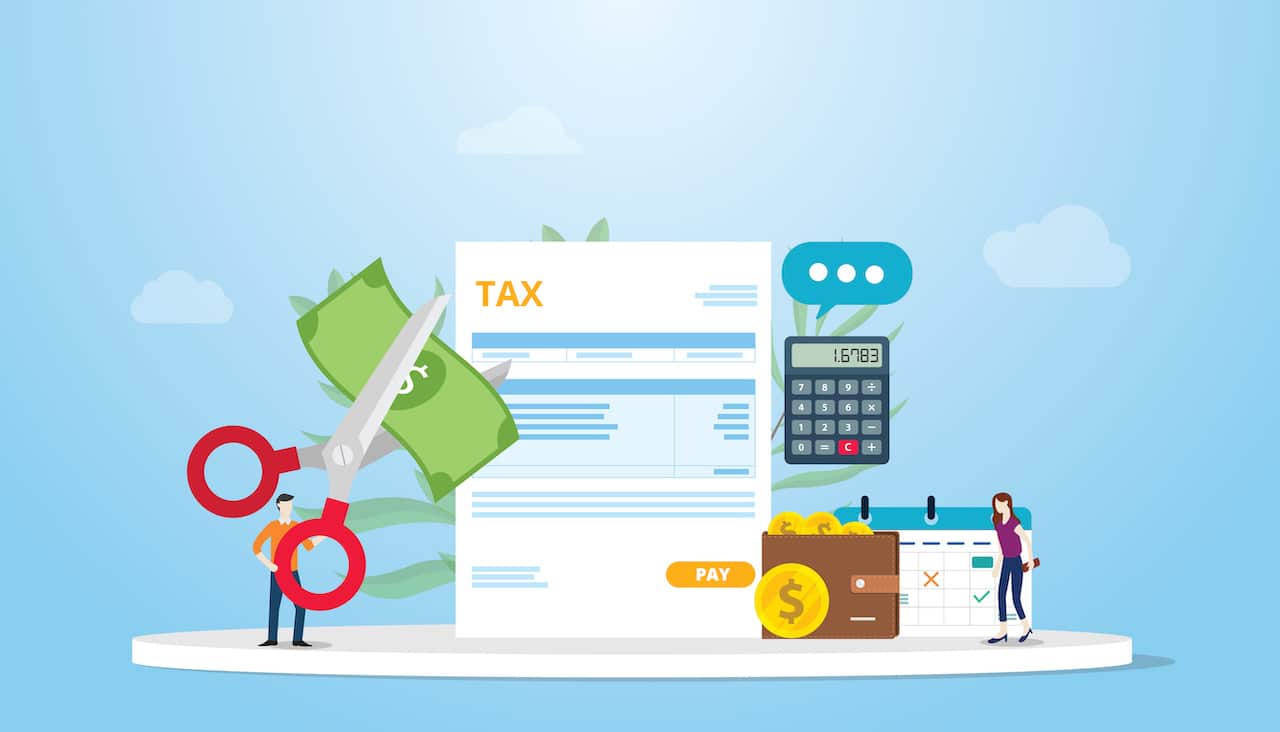Credit Sesame highlights tax deductions and credits you may reduce your tax bill.
Tax deductions and credits can help make filing your taxes in 2023 easier and cheaper, two descriptions not normally associated with income taxes.
You have to know which programs apply to you and must itemize your deductions instead of taking the standard deduction. For most people, itemizing deductions only makes sense if they have enough deductible expenses that add up to more than the savings of a standard deduction.
Tax deductions vs tax credits
First, it helps to know the differences between tax deductions and credits.
Tax deductions
Tax deductions allow a certain amount to be deducted from your taxable income, and can reduce the amount of your income before you calculate the tax you owe. The amount of the tax deduction is subtracted from your income, which lowers your taxable income, and thus your tax bill is lower.
Deductions lower your taxable income by the percentage of your highest federal income tax bracket. If you fall into the 22% tax bracket, a $1,000 deduction saves you $220.
Tax credits
Tax credits reduce the amount of tax you owe on a dollar-for-dollar basis, and can reduce the amount of tax you owe or increase your tax refund. Some credits may give you a refund even if you don’t owe any tax.
A $1,000 tax credit lowers your tax bill by $1,000. Tax credits are usually bigger than tax deductions, and can lower your tax bill by a lot more.
Some credits are refundable, meaning you get a check for the amount, depending on how much you owe in taxes. If you qualify for a $1,000 credit but owe $250 in taxes, you’ll get a refund for the difference of $750. Many credits, however, aren’t refundable.
Popular deductions and credits
The Internal Revenue Service lists many tax deductions and credits that can save taxpayers money. Here are some of the most popular ones:
Child tax credit
The child tax credit provides up to $2,000 per child, with $1,500 potentially refundable. The IRS has an online tool to determine if a persona qualifies for the credit.
Child and dependent care credit
This credit generally covers up to 35% of day care and related costs for a child under 13, a spouse or parent unable to care for themselves, or another dependent so you can work. Expenses are limited to $3,000 for one dependent or $6,000 for two or more.
Earned income tax credit
Called the EITC for short, this tax credit is meant for low-to-moderate-income workers and families. For filers with an adjusted gross income of around $59,000 or less, the EITC provides a tax credit between $560 and $6,935.
Adoption credit
Up to $14,890 in adoption costs per child can be used as a tax credit. An income limit is imposed, up to $263,410 of your modified adjusted gross income for tax year 2022.
American opportunity tax credit
The AOC is an education credit on the first $2,000 spent on tuition, books, equipment and school fees, plus 25% of the next $2,000, for a total of $2,500. Living expenses and transportation costs can’t be claimed.
Lifetime learning credit
This is among the many education tax benefits allowed by the IRS. It allows up to $2,000 paid for tuition and school fees to be used as a tax credit.
Student loan interest deduction
Up to $2,500 can be deducted from taxes on interest paid on student loans.
Charitable donations deduction
Donations you make to charities can be deducted if you itemize. These include cash or property, such as clothes, a car and furniture. You can generally deduct up to 60% of your adjusted gross income.
Mortgage interest deduction
The mortgage interest tax deduction can be a big savings for homeowners. The mortgage interest they pay is deducted from their taxable income, which lowers their federal income tax.
Saver’s credit
From 10%-50% of up to $2,000, or $4,000 if filing jointly, in contributions to an IRA, 401(k), 403(b) or certain other retirement plans can be taken as a tax credit. The amount of credit you receive is based on the contributions and your adjusted gross income. The lower your income, the higher saver’s credit rate you’ll get.
401(k) contributions deduction
Money moved from your paycheck into a 401(k) retirement plan is not taxed by the IRS. The contribution limit for the 2022 tax year was $20,500, or $27,000 if you were 50 or older.
Electric vehicle tax credit
The electric vehicle tax credit is not refundable, but it can mean deducting from $2,500 to $7,000 from the taxes you owe when buying an electric car. For tax year 2023, the credit expands to used electric vehicles, so consider it when filing your 2023 taxes in 2024.
Solar tax credit
Also called the residential clean energy credit, the solar tax credit gives up to 30% of the installation cost of solar energy systems such as solar water heaters and solar panels.
Health Savings Account contributions deduction
HSA contributions are tax-deductible, and withdrawals for qualified medical expenses are tax-free.
Medical expenses deduction
Qualified, unreimbursed medical and dental expenses that are up to 7.5% of your adjusted gross income can be deducted from your taxes.
Gambling loss deduction
Gambling losses and expenses are tax deductions up to the amount you’ve won gambling. Spend $100 on lottery tickets or bet that much at a casino, then you can report a $100 deduction if you win at least $100. You can’t deduct more than you win.
How much is the standard deduction?
Tax deductions are either itemized or a standard deduction, not both. Itemizing takes some extra work, but is worth it if it’s higher than the standard deduction.
How much your standard deduction is depends on your filing status. Here are some of the standard deduction amounts for 2022:
- Married for jointly or qualifying widow(er): $25,900
- Head of household: $19,400
- Single or married filing separately: $12,950
Taxpayers who are 65 and older or blind also get an increase in their standard deduction. It’s $1,750 more for single or head of household, and $1,400 more for married or qualifying widow(er).
If you liked Tax deductions 101, you may also like:
- What if you cannot pay your taxes for 2022?
- What to do if you get a tax refund in 2023
- Tax season 2023 checklist
Disclaimer: This guide to buying a house and getting a mortgage is for informational purposes only and is not intended as a substitute for professional advice.




















